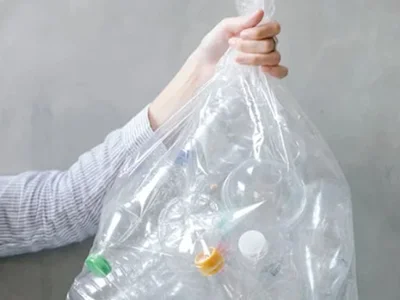Our Reclaim Waste Diaries
Our Reclaim Waste Diaries
Blog Article
The Buzz on Reclaim Waste
Table of ContentsHow Reclaim Waste can Save You Time, Stress, and Money.How Reclaim Waste can Save You Time, Stress, and Money.Some Of Reclaim WasteExcitement About Reclaim WasteFacts About Reclaim Waste Revealed
Explore the types, events, and kinds of fluid waste. Domestic sewer waste describes the waste and items from a domestic sewage-disposal tank. This type of waste is produced by people in houses, colleges, and various other structures. This only consists of septic systems that have a drainpipe area. The appropriate management and disposal of residential sewage waste call for liquid waste to be moved to a sewer treatment plant where the correct techniques and devices are used to cleanse and take care of waste.
Business waste frequently includes possible risks, such as combustible products or a combination of fluid and strong waste products, and needs an advanced and comprehensive disposal procedure. The disposal of business waste usually entails the filtration of waste before transport to make certain safe and proper disposal. Hazardous waste is developed from results and drainage of industrial processes and production.
This type of waste can not make use of the same sewer management transportation or processes as septic or industrial liquids. The hazardous waste administration procedure calls for the evaluation and testing of fluid waste before it goes through the disposal procedure (liquid waste removal). Drainage waste is the fluid waste that comes from drainage and excess stormwater in very inhabited areas or cities
Overflow waste can cause contamination and flooding if not taken care of properly. Ensuring correct waste management can avoid disasters and lower environmental harm.
Some Known Factual Statements About Reclaim Waste
Get in touch with PROS Solutions today to find out about our waste administration and disposal services and the proper methods to look after the liquid waste you generate.
(https://medium.com/@leonaube33101/about)This so-called 'wastewater' is not just an important resource yet, after therapy, will certainly be launched to our land, waterways or the sea. Utilized water from commodes, showers, baths, cooking area sinks, laundries and industrial processes is understood as wastewater.

water made use of to cool equipment or tidy plant and tools). Stormwater, a form of wastewater, is runoff that streams from farming and metropolitan locations such as roof coverings, parks, gardens, roadways, paths and seamless gutters right into stormwater drains pipes, after rainfall. Stormwater flows unattended straight to neighborhood creeks or rivers, eventually getting to the sea.
9 Simple Techniques For Reclaim Waste
In Queensland, most wastewater is treated at sewage treatment plants. Wastewater is transported from domestic or industrial sites through a system of sewers and pump stations, called sewerage reticulation, to a sewer treatment plant. Regional governments develop, keep and operate most sewage treatment plants. Operators are certified under the Environmental Management Act 1994 to release cured wastewater at an appropriate ecological requirement right into waterways.
The Division of Natural Resources recommends neighborhood federal governments concerning handling, operating and maintaining sewage systems and treatment plants. In unsewered locations, regional governments may require householders to install specific or family sewage therapy systems to treat domestic wastewater from commodes, kitchen areas, shower rooms and laundries. The Division of Natural Resources authorizes the use of household systems when they are proven to be efficient.
The majority YOURURL.com of stormwater gets no therapy. In some new neighborhoods, therapy of some stormwater to get rid of clutter, sand and gravel has actually started utilizing gross pollutant catches. Wastewater treatment occurs in 4 stages: Removes strong matter. Bigger solids, such as plastics and other objects mistakenly discharged to sewage systems, are gotten rid of when wastewater is passed with screens.
Makes use of little living microorganisms understands as micro-organisms to damage down and remove staying dissolved wastes and fine bits. Micro-organisms and wastes are incorporated in the sludge.
The Reclaim Waste PDFs
Nutrient removal is not readily available at all sewer therapy plants due to the fact that it needs pricey specialized devices. Clear liquid effluent generated after treatment may still contain disease-causing micro-organisms - liquid waste removal.

Most wastewater streams into the sewerage system. Under the Act, neighborhood federal governments carry out authorizations and licences for eco appropriate activities (ERAs) entailing wastewater releases that may have a local impact.
Rumored Buzz on Reclaim Waste
Monitoring offers accurate details about water top quality and can validate that licence problems are being satisfied. The info acquired via surveillance gives the basis for making water top quality choices.
Report this page